Questo breve scritto dedicato all’elogio del poetico può essere considerato un pre-testo per parlare della mostra di Lorenzo Missoni, oppure, le opere selezionate, sono la scusa, per quanto mi riguarda, di scrivere del poetico. Forse entrambe le cose.
Frequento i lavori di Lorenzo da almeno dieci anni, il suo lavoro richiama la mia attenzione per la sua difficoltà, per il suo porsi nel difficile, per il suo resistere sempre al facile, per il suo competere con le sorti del senso. Un difficile che non si dirige verso l’eccellenza, la competizione, che individua un migliore, ma un difficile che si orienta verso la precisione, un difficile che è capace di cedere al facile, che è un’apertura al senso. Ecco giungere il poetico, ciò che riguarda la poesia, la creazione, il suo agire, il suo movimento.
Il poetico è il difficile che resiste al facile, che non ha paura di immaginare e individuare l’indicibile per cedere e concedere al facile. Un facile non banale, esatto, preciso, che realizza l’accesso al senso riconoscendone nello stesso tempo il limite. Una resistenza del poetico che non è altro che una resistenza allo stesso linguaggio, alla sua smisuratezza che lo conduce spesso alla approssimazione. Il poetico è un equilibrio instabile fra silenzio e chiacchiera. Le opere che incontriamo nella personale PENSIERO.POETICO., abitano uno spazio, che in partenza, per sua natura artificiale, è un non luogo, un grey-cube, freddo, geometrico, “apparentemente facile”, creano uno spazio estetico, complesso, difficile, con tante soglie, accessi, che si attivano e riflettono allo sguardo dello spettatore.
Life Game, è un dittico che ci parla con seria ironia della morte, del gioco, della nostra vanità; La poesia va difesa sempre, un’installazione manifesto, monumento “ingenuo”, che solo l’arte e la poesia insieme possono supportare senza perdere senso; Remains, resti di parato, sono la rappresentazione estetica ed etica dello scarto trattenuto, della memoria; Alza per caso gli occhi e vedi, è una scultura-ritratto che attrae con “violenza” la nostra attenzione, ci indica la presenza di un’assenza, ma anche la necessità dell’imprevisto; Cose trovate da qualche parte e accostate senza una giustificazione plausibile, apre il nostro sguardo verso l’archivio, il nostro/proprio archivio disordinato, degli oggetti che ci hanno colpiti e che rappresentano la struttura dei nostri pensieri ancora non definiti, attraverso una serie di collage; Con titolo provvisorio, siamo di fronte alla scultura dell’artista, l’autoritratto dell’uomo creativo, l’autoritratto dell’uomo che si rinnova, che rinasce continuamente, mantenendo la sua capacità di incanto.
Questo procedere rapido, ma zoppicando, zigzagando tra questi lavori ci pone all’interno di uno spazio fisico ristretto e, come anticipato ci fa arrestare, di volta in volta di fronte a delle soglie, dei concettimmagine, che non conducono ad un altro mondo, ma riflettono le domande che lo spettatore si pone, facendole rimbalzare su punti di vista differenti, soglie che sono soglie di senso, che restano ferme, resistono.
L’opera d’arte, la singola opera d’arte, i lavori di Lorenzo Missoni, in questa occasione, diventano dispositivi posti tra la poesia, che non decide e non deve decidere e il pensiero, la filosofia, che invece deve decidere, ha il dovere di decidere, perché è sempre politica.
Personalmente avanzo un’ipotesi, che spero presto di continuare ad indagare, con maggiore precisone; l’opera d’arte, in questo caso specifico, l’opera d’arte visiva, i lavori di Lorenzo in precedenza citati, e sinteticamente descritti, sono la prova ontologica della necessità e dell’esistenza di un ambiente dove il poetico e il pensiero biforcano, ma spesso, ad ogni spigolo, ad ogni resistenza, ad ogni difficoltà, si intrecciano creando un’oscillazione permanente tra i poeti e i filosofi, tra la poesia, madre di tutte le Arti, e la filosofia, amore per la conoscenza, per il pensiero. Un’oscillazione permanente, motore ecologico di un nuovo rinascimento.
Ebbene si, è arrivato il tempo delle scuse. Mi sono appropriato indebitamente delle opere di Lorenzo Missoni, per esprimere la mia necessità di pensare, per esercitare il pensiero poetico. Può essere questa una delle funzioni dell’arte?
Scusa Lorenzo!
Stefano Monti
This short essay in praise of the poetic might be a pre-text to talk about Lorenzo Missoni’s exhibition, or perhaps the selected works are an excuse, as far as I am concerned, for writing about the poetic. Perhaps it’s both. I have been following Lorenzo’s work for at least ten years, his work has always caught my attention because of its difficulty, for the way it chooses that which is difficult, for always resisting anything that is easy and for the way it competes with the fate of meaning. This is not a difficulty that aims at excellence, beating the competition, or being the best, but a difficulty that is aimed at precision, a difficulty that is capable of giving in to that which is easy and which offers an opening to meaning. This is where we come to the poetic: that which concerns poetry, its creation, its action, its movement. The poetic is the aspect of difficulty that resists that which is easy, it is that which is not afraid of imagining and identifying the unspeakable in order to yield and concede to that which is easy. A kind of easy that is non-trivial, which is exact, precise and can achieve access to meaning while recognizing its limits. This is a poetic resistance which is nothing less than a resistance to language itself, to its immeasurable nature which often leads it to approximation. The poetic lies in an unstable balance between silence and chatter. The works in the solo show PENSIERO.POETICO., inhabit a space which, by its very nature, is a non-place from the outset: a grey-cube, cold, geometric and “apparently easy”. Yet they create an aesthetic, complex space, one that is difficult, with many threshold and ways in, which activate and reflect the viewer’s gaze. Life Game, is a diptych that speaks to us with the serious irony of death, play and our vanity. Poetry must always be defended, an installation that is a manifesto, a “naive” monument, which only art and poetry together can support without losing meaning. Remains, remains of wallpaper, are the aesthetic and ethical representation of waste that has been retained and of memory; Alza per caso gli occhi e vedi (Raise your eyes by chance and see), is a sculptural portrait that attracts our attention with “violence”, indicating the presence of an absence, but also the need for the unexpected; Cose trovate da qualche parte e accostate senza una giustificazione plausibile (Things found somewhere and juxtaposed without a plausible justification), opens our gaze towards the idea of an archive, our collective/personal disordered archive, of the objects that have stayed with us and which represent the structure of our still-undefined thoughts through a series of collages; Con titolo provvisorio (With a provisional title), confronts us with the sculpture of the artist, the self-portrait of a creative man, the self-portrait of a man who renews himself, who is continuously reborn, always maintaining his ability to enchant. We ziz-zag between these works, rapid but limping, restricted by the physical space. As we might imagine, this makes us stop from time to time at certain thresholds, before the concept-images. These do not lead to another world, but rather reflect the questions that the viewer asks, making them bounce against different points of view. These thresholds are thresholds of meaning, which remain firm, and resist. The work of art, the individual work of art, the works by Lorenzo Missoni on this occasion, become devices placed between poetry – which does not decide and must not decide – and thought or philosophy – which must decide, and has a duty to decide because it is always political. Personally, I would like to put forward a hypothesis, which I hope to continue to investigate with greater precision soon: the work of art – in this specific case, the visual artwork, Lorenzo’s works as previously mentioned and briefly described – are the ontological proof of the need and existence of an environment where poetry and thought separate. However, often, at every turn, at every point of resistance, at every difficulty, they intertwine and create a permanent oscillation between poets and philosophers, between poetry, mother of all the Arts, and philosophy, the love of knowledge and thought. A permanent oscillation, an ecological engine of a new renaissance.
Well, I suppose the time has come for an apology. I have misappropriated the works by Lorenzo Missoni to express my need to think and exercise poetic thought.
Can this be one of the functions of art?
Sorry Lorenzo!
Stefano Monti
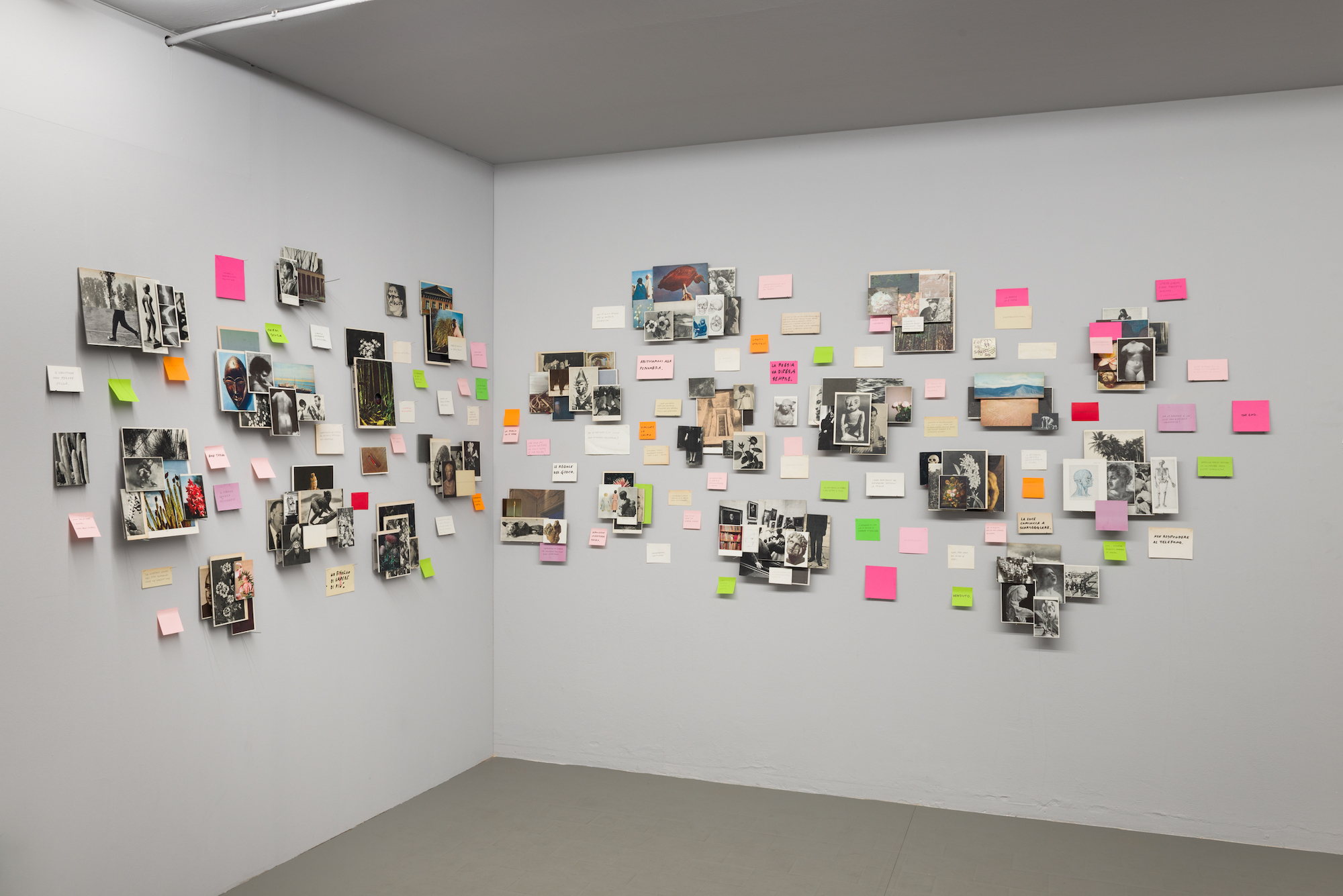
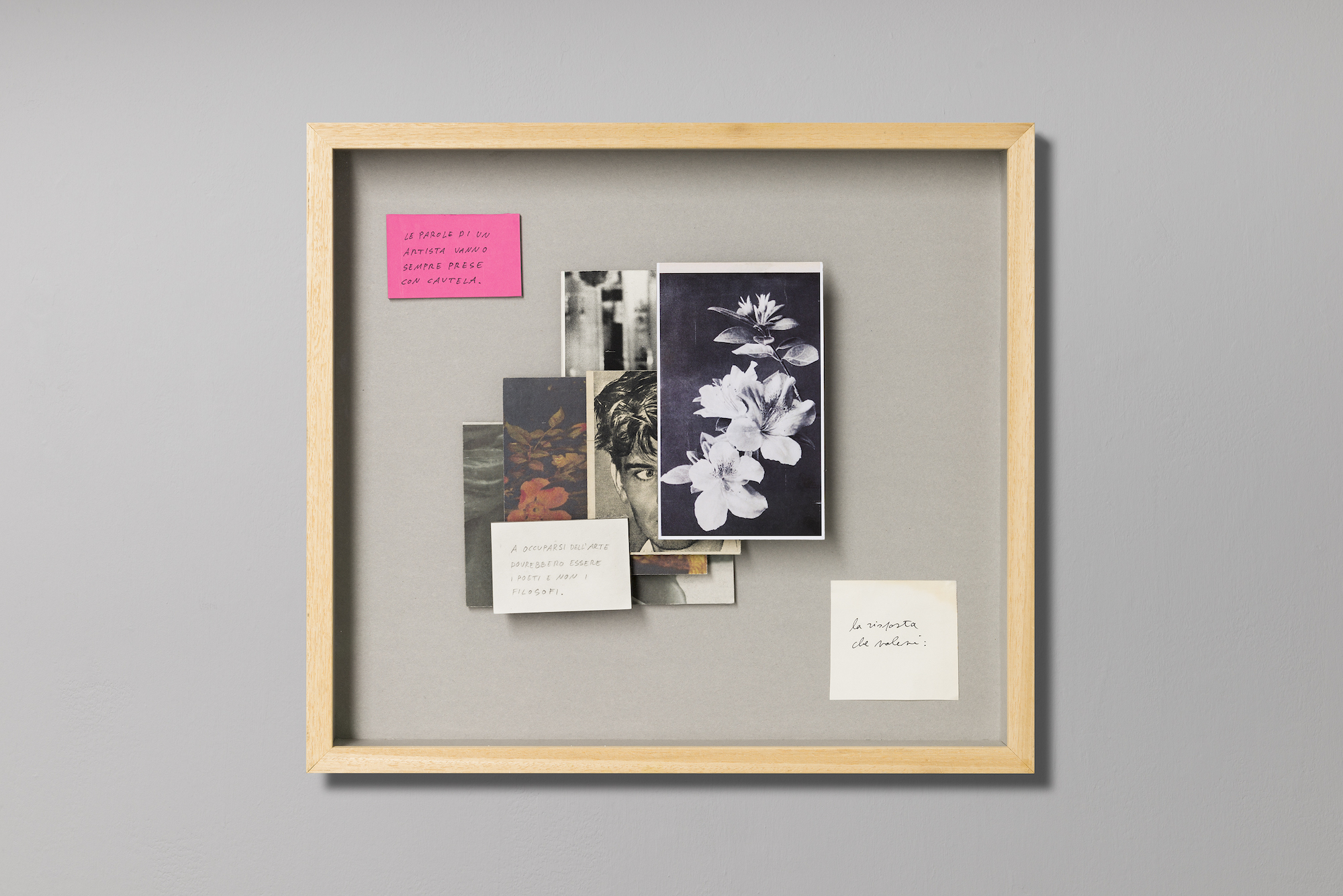
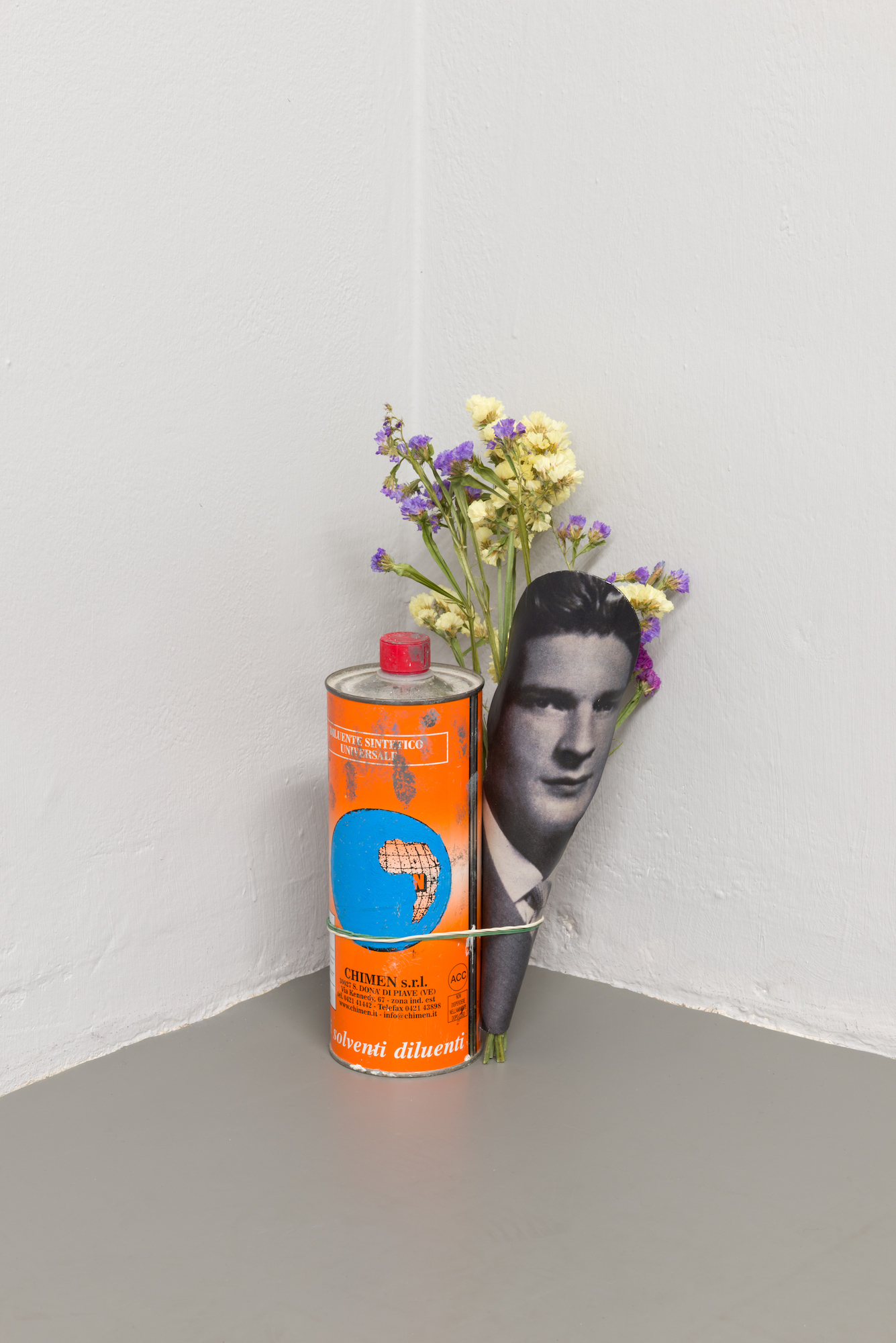
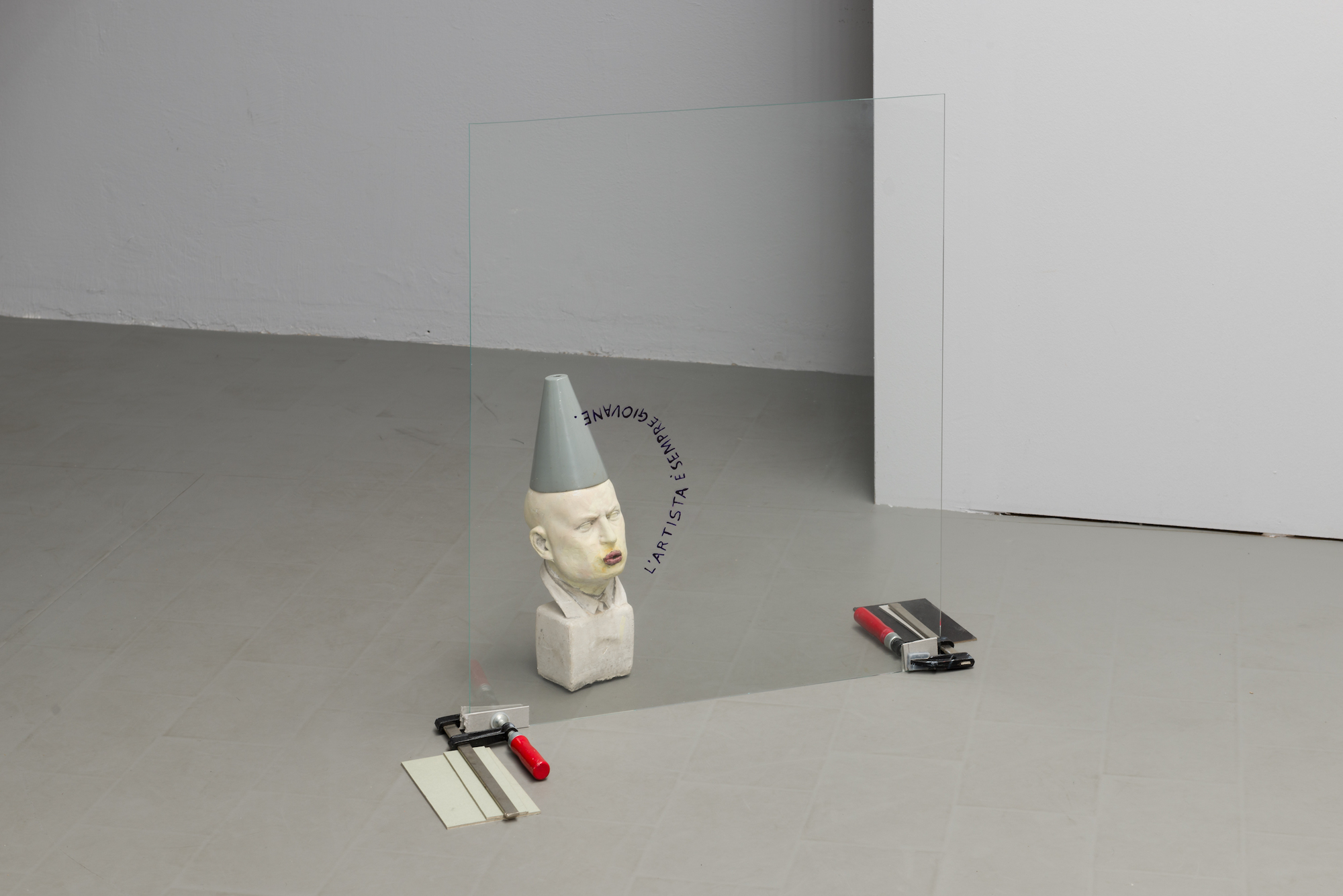
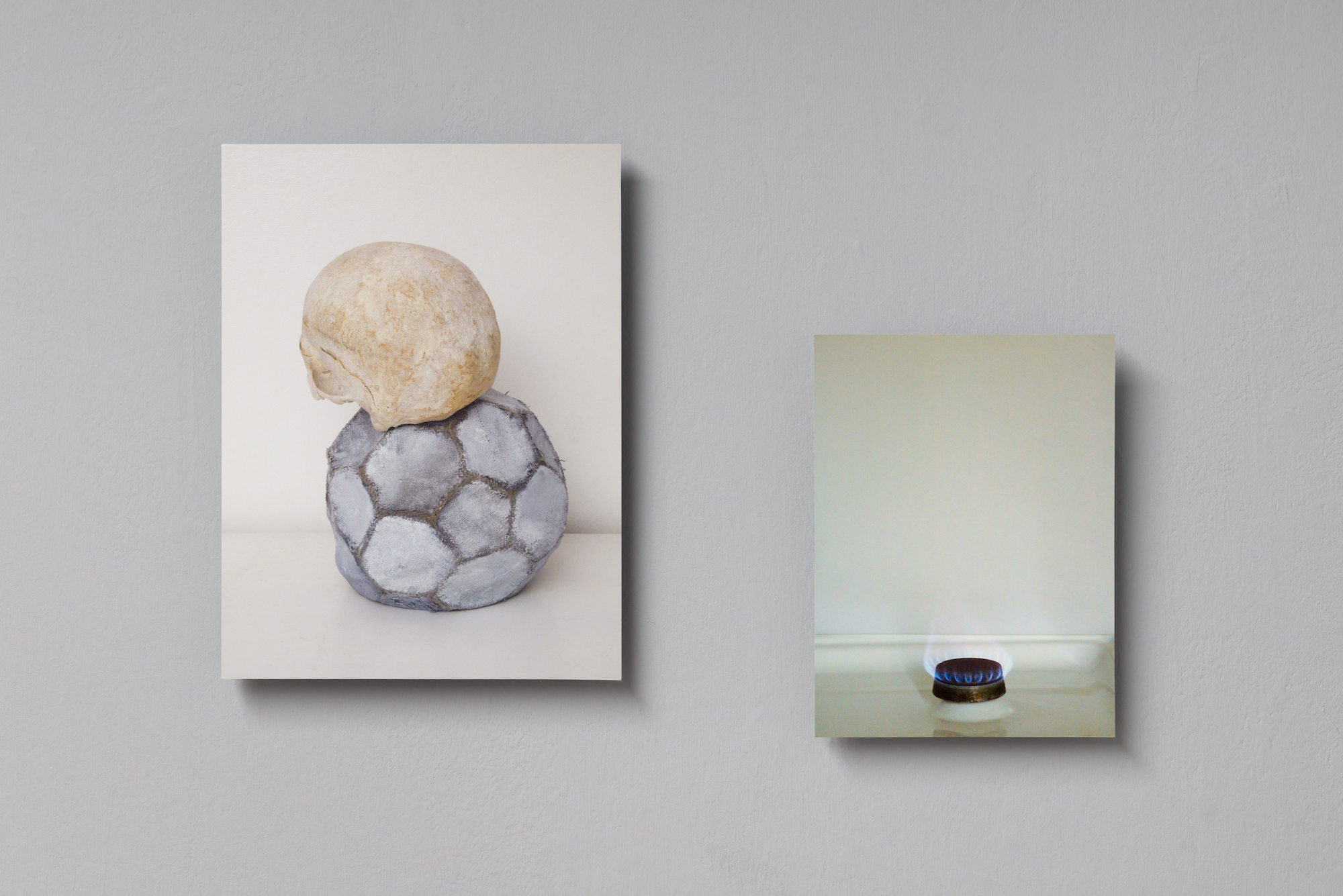
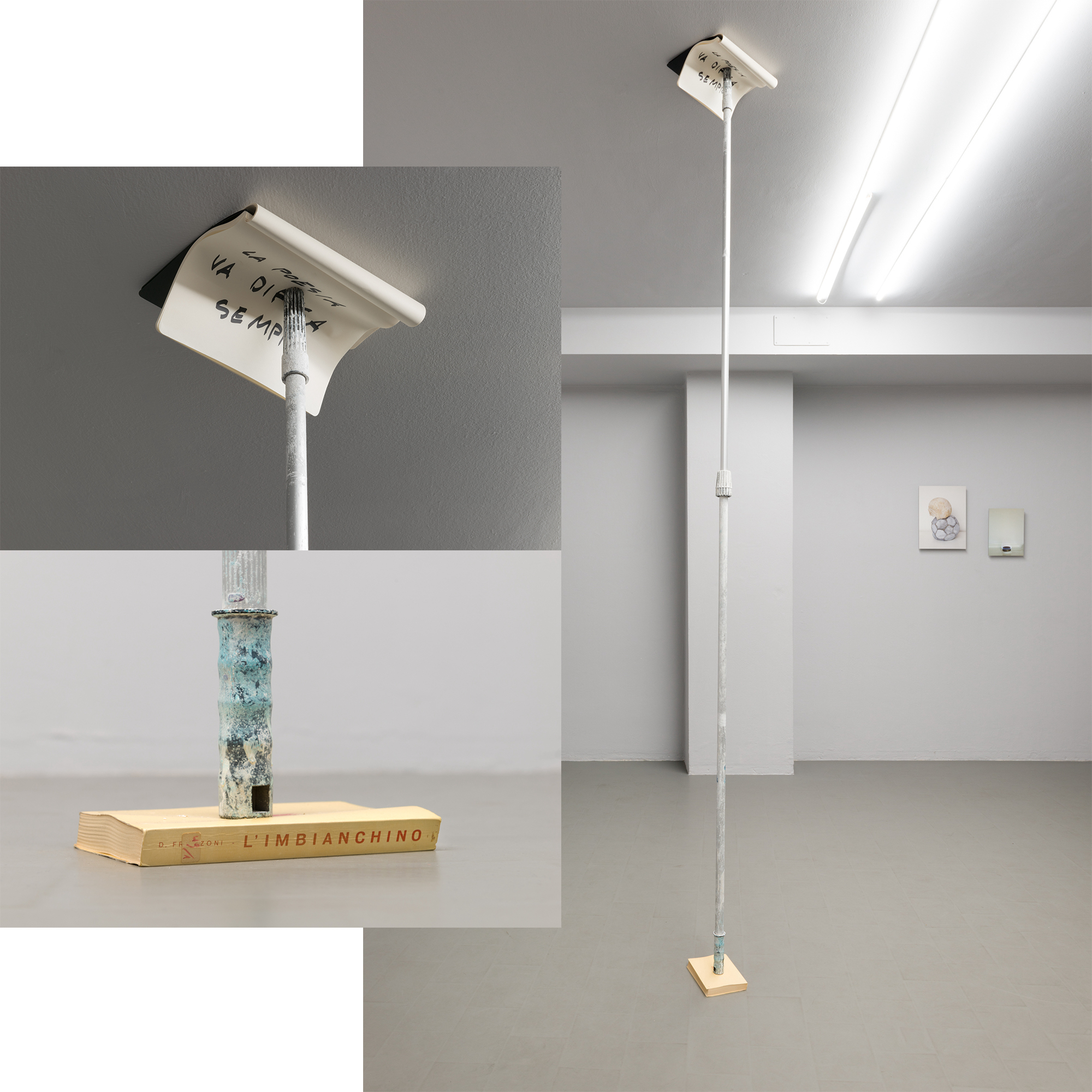
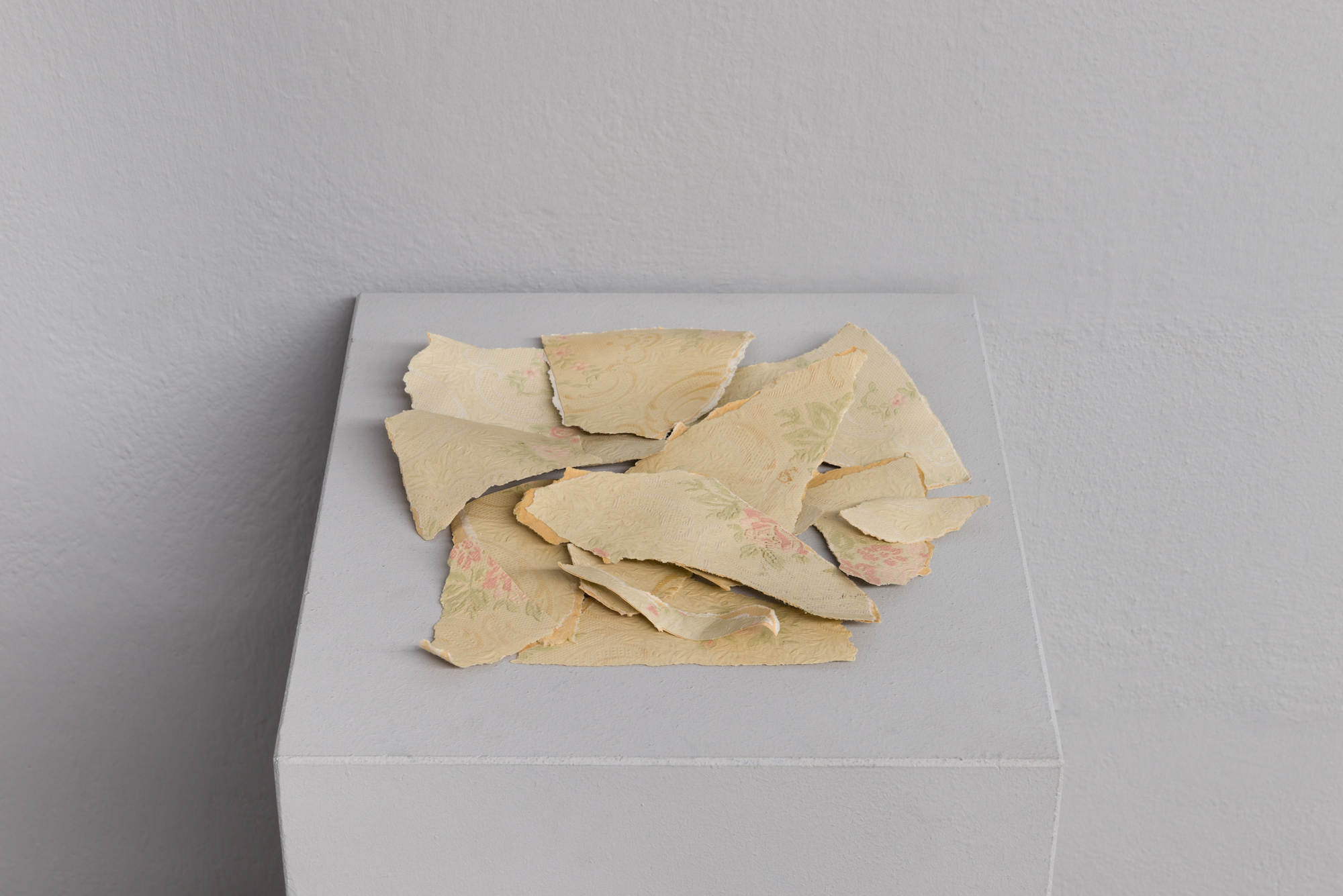
For all SMDOT/contemporary art exhibitions, a playlist will be created by Steve Nardini, the heart and soul of KOBO SHOP and a great musical expert. The following songs and artists have been selected for Lorenzo Missoni and his solo exhibition "PENSIERO.POETICO."